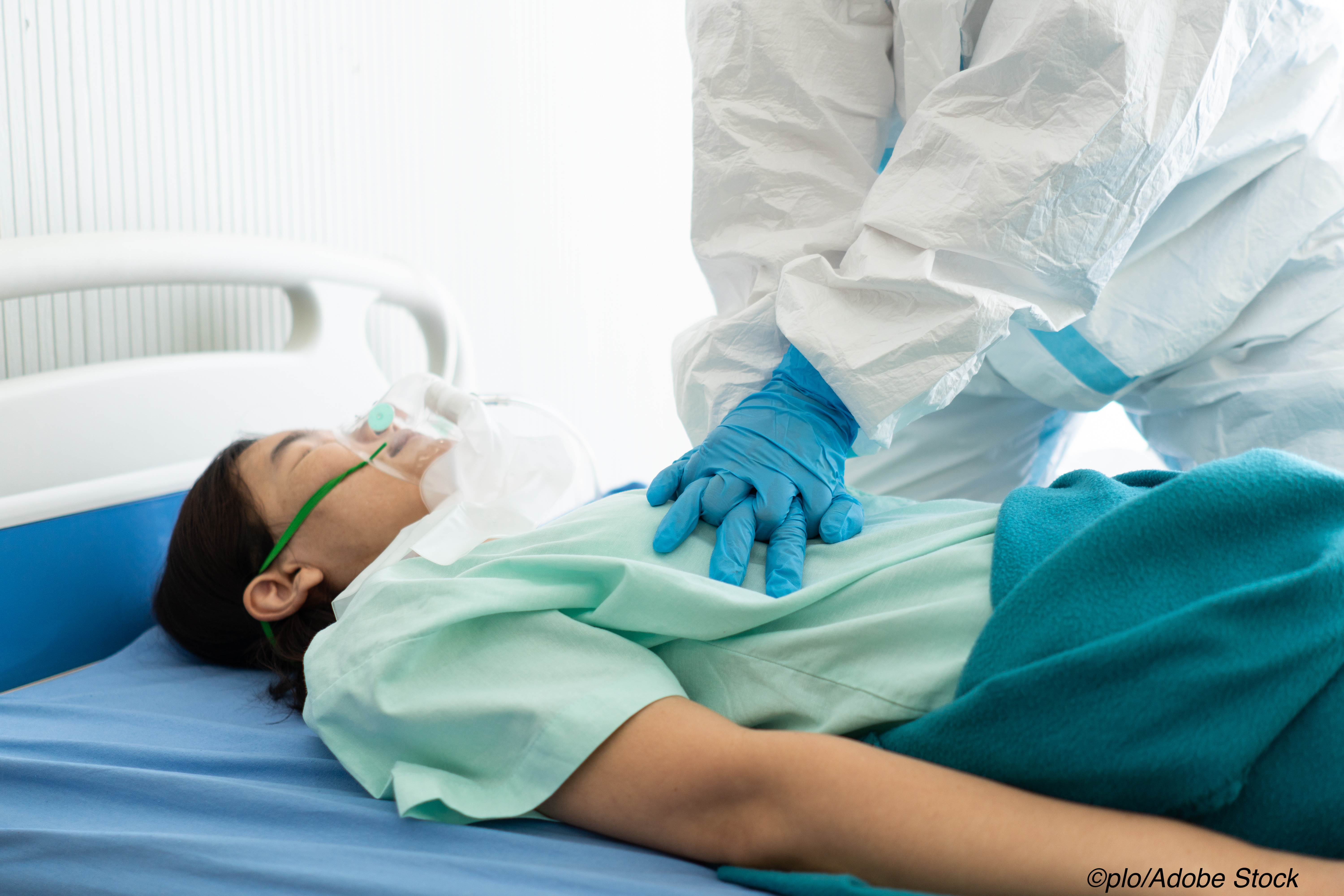
Though Covid-19 primarily manifests as a severe respiratory infection, “numerous studies demonstrate that cardiovascular complications are common, and pre-existing cardiovascular conditions are predictors of survival in Covid-19,” senior study author Araz Rawshani, MD, PhD, of the Institute of Medicine at the University of Gothenburg in Gothenburg, Sweden, and colleagues explained in the European Heart Journal. Rawshani and colleagues conducted this study to assess the characteristics and outcomes among cardiac arrest cases with Covid-19 and determine the differences between pre-pandemic and pandemic-concurrent cases of out-of-hospital and in-hospital cardiac arrest (OHCA and IHCA).
“This is, to the best of our knowledge, the most detailed report on characteristics and outcome in Covid-19 patients suffering cardiac arrest within and beyond the hospital perimeter,” they wrote. “We report a number of unexpected findings, many of which highlight the severity of Covid-19 and the potential shift in the epidemiology of cardiac arrest brought by this pandemic. As of writing this report, no patient with Covid-19 has been discharged alive after suffering an OHCA; as a comparator, 36% of cases without Covid-19 who were hospitalized have been discharged alive.”
In a press release from the European Society of Cardiology, study coauthor Pedram Sultanian, a doctoral student at the University of Gothenburg, said: “Our study clearly shows that cardiac arrest and Covid-19 is a very lethal combination. Patients with the coronavirus should be monitored intensively and measures taken to prevent cardiac arrest, for instance with the use of continuous heart monitors for patients at high risk.”
For their analysis, Rawshani and colleagues analyzed data from the Swedish Registry for Cardiopulmonary Resuscitation from Jan. 1 to July 20, 2020, defining March 16, 2020 as the start of the pandemic. They included 1,946 cases of OHCA and 1,080 cases of IHCA over the study period and assessed overall and 30-day mortality using Cox regression and logistic regression, respectively.
“During the pandemic, 88 (10.0%) of OHCAs and 72 (16.1%) of IHCAs had ongoing Covid-19,” the study authors reported. “With regards to OHCA during the pandemic, the odds ratio for 30-day mortality in Covid-19-positive cases, compared with Covid-19-negative cases, was 3.40 [95% confidence interval (CI) 1.31–11.64]; the corresponding hazard ratio was 1.45 (95% CI 1.13–1.85). Adjusted 30-day survival was 4.7% for patients with Covid-19, 9.8% for patients without Covid-19, and 7.6% in the pre-pandemic period. With regards to IHCA during the pandemic, the odds ratio for Covid-19-positive cases, compared with Covid-19-negative cases, was 2.27 (95% CI 1.27–4.24); the corresponding hazard ratio was 1.48 (95% CI 1.09–2.01). Adjusted 30-day survival was 23.1% in Covid-19-positive cases, 39.5% in patients without Covid-19, and 36.4% in the pre-pandemic period.”
Over the course of the study period, among Covid-19-positive patients, 83.4% of OHCA patients and 60.5% of IHCA patients died within 24 hours, they added.
Rawshani and colleagues noted that, while survival for uninfected patients suffering from OHCA and IHCA slightly improved during the pandemic, the difference was not statistically significant—and, if there was an improvement, it is likely explained by their finding that there was an 8.2% overall increase in bystander-witnessed cardiac arrests and a 47% increase in bystander defibrillation.
Notably, the study authors found a massive increase in mortality rates for IHCA among women with Covid-19—Covid-positive women were 7.6-fold more likely to die within 30 days of IHCA compared with Covid-negative women and over nine times more likely to die within 30 days compared to pre-pandemic cases.
The study authors also noted a 2.7-fold increase in the proportion of OHCAs that were triggered by breathing problems, as well as an 8.6% increase in compression-only cardiopulmonary resuscitation over the course of the pandemic and reduction in the number of people treated with both chest compression and mouth-to-mouth resuscitation (33% pre-pandemic to 23% during the pandemic).
As in other areas, the European Resuscitation Council and the Swedish Resuscitation Council issued guidelines in March 2020 recommending that bystanders who witness a cardiac arrest should avoid mouth-to-mouth resuscitation in cases of suspected Covid-19 infection to help reduce viral spread—a change which, unfortunately, put Covid-19 patients at a disadvantage. “Although previous studies have indicated that compression-only CPR delivered by bystanders may be as effective as compressions and ventilation combined, this may not apply to cases with Covid-19 since they primarily suffer from respiratory failure,” the study authors explained.
Interestingly, Rawshani and colleagues observed that “Covid-19-positive patients were less frequently [electrocardiogram] ECG monitored and they had fewer witnessed arrests. Given the poor outcomes and high risk of cardiac arrest, we believe that patients with Covid-19 should be provided with monitoring of ECG and oxygen saturation, which would allow for prompt recognition of ventricular arrhythmias and oxygen desaturation.”
Study limitations included that Stockholm county, where the majority of Swedish Covid-19 cases occurred, had not reported data on OHCAs at the time of the study, which reduced the number of Covid-19 patients in the study, the study authors noted. Also, they added that they did not have data regarding the basis for Covid-19 diagnosis, which may have resulted in some misclassification of cases.
- Patients with Covid-19 who suffer a cardiac arrest are far more likely to die than patients who are not infected, whether the case occurs in or outside of the hospital, Swedish researchers found.
- Patients with Covid-19 should be monitored intensively and measures taken to prevent cardiac arrest, for instance with the use of continuous heart monitors for patients at high risk.
John McKenna, Associate Editor, BreakingMED™
The study authors had no conflicts of interest to declare.
Cat ID: 190
Topic ID: 79,190,728,791,575,730,933,358,190,926,192,927,151,928,925,934

